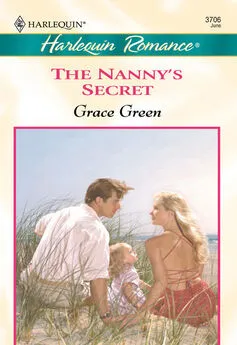Greg Iles - The Devils Punchbowl
- Название:The Devils Punchbowl
- Автор:
- Жанр:
- Издательство:неизвестно
- Год:неизвестен
- ISBN:нет данных
- Рейтинг:
- Избранное:Добавить в избранное
-
Отзывы:
-
Ваша оценка:
Greg Iles - The Devils Punchbowl краткое содержание
With his gift for crafting “a keep-you engaged- to-the-very-last-page thriller” (USA Today) at full throttle, Greg Iles brings back the unforgettable Penn Cage in this electrifying suspense masterpiece.
A new day has dawned . . . but the darkest evils live forever in the murky depths of a Southern town.
Penn Cage was elected mayor of Natchez, Mississippi—the hometown he returned to after the death of his wife—on a tide of support for change. Two years into his term, casino gambling has proved a sure bet for bringing new jobs and fresh money to this fading jewel of the Old South. But deep inside the Magnolia Queen, a fantastical repurposed steamboat, a depraved hidden world draws high-stakes players with money to burn on their unquenchable taste for blood sport and the dark vices that go with it. When an old high school friend hands him blood-chilling evidence, Penn alone must beat the odds tracking a sophisticated killer who counters his every move, placing those nearest to him—including his young daughter, his renowned physician father, and a lover from the past—in grave danger, and all at the risk of jeopardizing forever the town he loves.
From Publishers Weekly
Iles's third addition to the Penn Cage saga is an effective thriller that would have been even more satisfying at half its length. There is a lot of story to cover, with Cage now mayor of Natchez, Miss., battling to save his hometown, his family and his true love from the evil clutches of a pair of homicidal casino operators who are being protected by a homeland security bigwig. Dick Hill handles the large cast of characters effortlessly, adopting Southern accents that range from aristocratic (Cage and his elderly father) to redneck (assorted Natchez townsfolk). He provides the bad guys with their vocal flair, including an icy arrogance for the homeland security honcho, a soft Asian-tempered English for the daughter of an international villain and the rough Irish brogue of the two main antagonists. One of the latter pretends to be an upper-class Englishman and, in a moment of revelation, Hill does a smashing job of switching accents mid-sentence.
The Devils Punchbowl - читать онлайн бесплатно полную версию (весь текст целиком)
Интервал:
Закладка:
Something weirds going on, Kelly says. The VIP boats barely moving, but they still haven't stopped anywhere.
What do you think?
He looks across the space between us. Could they be fighting dogs
on
the boat? Down below or something?
I guess. Caitlin told me urban dogfighters hold fights in basements and places like that. But thats an expensive cabin cruiser. I cant imagine them fighting dogs in there.
Kelly stops paddling and lets his boat drift with the current. In five minutes well be at the place they docked last night. If they haven't stopped anywhere by then, I say we get out and wait. Scout the place out. They could actually be coming back to the same spot.
You think?
Kelly chuckles softly. They might just be cruising around drinking, getting hyped up for the fight. Maybe the handlers haven't got the dogs here yet. Yeah, this might be perfect. We can videotape everybody as they get off the cruiser.
What if somebody heard Dannys chopper, and it spooked them?
Kellys smile vanishes. Dont put the hex on us, man. Lets go.
He digs his paddle into the black water and heads for the Louisiana shore. Another mile of river slides beneath us, then Kelly holds up his hand. After I stop paddling, he checks his GPS, then says, Were there. Lets take em in.
I see a sandbar. Do you want to land there?
Lets go about forty yards farther down, where those weeds are.
To my surprise, Kelly lets me lead. I pull up my rudder with the lanyard, then drive the bow of my boat onto the gently sloping river bottom. When my motion stops, I lay the shaft of my paddle behind me, just aft of the cockpit, and brace the flat of the blade on the sand. Using this to stabilize the boat, I extricate my legs from the cockpit and step out into the water. Kelly does the same as I drag my kayak into the weeds, and soon were standing under some small cottonwoods, surveying the land where Danny saw the VIP boat anchor last night.
Kelly takes a night scope from his pack and glasses the darkness in front of us. To me the landscape looks like a black-and-white photograph tinted slightly blue. The hum of insects is annoyingly loud, and the only light comes from the half-moon over our heads. Kellys
view is completely different, of course. To him this night is a montage of ghostly greens, one he can navigate with the sure-footedness of a deer feeding at dusk.
What do you see? I ask.
Nothing much. Lets move inland.
All I can do is follow orders and walk in his tracks. The soil is sandy, the weeds and nettles thick. As we get farther from the river, the cottonwood trees tower above us.
Any signs of people?
Theres a shed about forty meters to the north, he says. No lights. Looks like a swing set or something beside it.
As we pick our way through the tree trunks, Kelly adds, I see a few benches and chairs.
Though the chill of fall was in the air on the river, here the night is thick with the smell of green foliage, and I've begun to sweat. Its as though weve stumbled into some low-lying region where summer never ends.
Kelly curses as I collide with his back. He stands immobile, head cocked as though hes listening for something. When I start to speak, he flips up a hand and whispers, Give it a second. Youll understand.
Then I do. The smell of death is in the airthick and powerful enough to smother the green scent I savored only moments ago. The odor isnt alien; its what you smell when youre forced to drive slowly past an armadillo thats been dead for two days.
This place feels deserted, I whisper.
Kelly lowers the scope, then raises his neck and turns his head like a meerkat moving in slow motion. No, theres something here. Something alive.
Deer?
Lets find out.
I have no desire to walk any closer to whatever is producing that reek. But when Kelly creeps forward, I realize I have even less desire to stand here by myself.
As I follow him, the stench of death grows overpowering. I can barely suppress my gag reflex. Beneath the putrid smell of decay is a pungent, ammoniac funk that almost burns the nostrils. Lifting the
crook of my left arm to my face, I bury my nose in my jacket sleeve and survey what little I can see by moonlight.
Theres the swing set Kelly mentioned. Its a standard A-frame set, like the one my parents bought at Western Auto in the 1960s, but no swings are attached to its crossbaronly some heavy-gauge springs and short links of chain. The chains end in hooks, while large carabiners dangle from the springs. Fifteen yards to my right is some sort of contraption that looks like a piece of antique playground equipment. It has two metal arms jutting from a central pillar that looks as though its meant to rotate so the arms can turn in a circle. But I cant quite solve the puzzle of its function. One of the arms ends in a hook, and a short length of chain dangles from the second, a few feet behind that one.
What is this place? I whisper.
Its for training, Kelly murmurs, clicking on a flashlight with a red filter on its lens. They hang things the dogs want from the hooks and springs. Pit bulls will leap up and bite and hang there for hours. They do it to strengthen the dogs jaws.
Whats that thing that looks like a homemade merry-go-round?
You don't want to know.
I do.
Kelly points his red beam at the strange machine and walks over to it. See this front arm? He points to the one that ends in a hook. They hang a pet caddy from this hook with a kitten or something else inside it. Then they chain the dog to this arm back here. The cat goes crazy from terror, of course, and the dog chases it, pushing against the resistance in the machine.
Jesus.
Its sort of like dog racesonly with this deal, when the dogs through running, they let him kill the cat. Sometimes they don't even use a pet caddy. They just hang the bait animal from the hook. I've seen that in Kabul. I think they call this thing a jenny, or something like that.
Suddenly the red beam vanishes, and I feel Kellys hand on my arm.
What is it? I ask, feeling my heart kick. Did you hear something?
A cat, I think. Listen.
Hes right. Beneath the whine of insects, I hear a tiny feline mewling, like the kind you hear behind Dumpsters at fast-food restaurants.
I think its coming from the shed, Kelly says. Come on.
I follow reluctantly, still thinking about the jenny.
Kelly quickly covers the distance to the shed, but as I follow, my right foot bangs into a bucket on the ground, sending a hollow clang through the trees. Before the sound dies, a cat screams inside the shed. Then something scuffles against the wall boards.
Very smooth, Kelly says, trying the door handle. Its locked.
I saw a silencer on your pistol. Just shoot it off.
No. He runs his hand down the faces of the weathered boards. Slipping his fingertips into a crack between two boards at shoulder level, he yanks a board right off the shed, then jumps back as though he expects a wildcat to leap out of the dark opening. When nothing emerges but the stench of old urine, he switches on his flashlight and shines it into the shed.
This is fucked-up, he says.
I can smell it. I don't need to look.
You said you needed to be able to testify about what we found, right? Well, here it is.
I peer through the hole long enough to see half a dozen malnourished, extremely dehydrated cats. Three or four others appear to be dead. Half-buried piles of excrement litter the dirt floor. My horror deepens when I realize that some of the cats are wearing collars. Mercifully, Kelly shines his light into the corner of the shed away from the animals, onto some short metal bars leaning in the corner.
What are those? I ask.
Break sticks. Bars to pry a bulldogs jaws loose from something.
Kelly takes out his camera and begins videotaping the contents of the shed.
We've got to let them go, I say.
Kelly makes a humming sound I cant interpret, but it sounds negative. We don't want anybody to know we were here. I'm going to put that board back in place.
I look back at him for a few seconds, then kneel and yank one end
of the bottom-most board away from the wall. While Kelly stares with a curious look on his face, two cats shoot through the opening and race away into the darkness.
Put the other board back up, I tell him. They don't know how many cats were in here.
There go the rest, says Kelly, pointing at several dark shapes escaping cautiously through the opening. The last cat through seems barely able to keep its feet.
Okay, Gandhi, says Kelly, hammering the top board back on with his hand. Lets put it back like we found it.
As I wedge the bottom board back into place, a chilling sound reaches my ears. Its a low, haunting howl, coming from somewhere deeper in the trees. It sounds like the crying of a soul thats wandered lost for a thousand years.
I
know
I don't want to see that, I whisper. Whatever it is. Lets get the fuck out of here.
Wait, says Kelly. Dannys talking to me.
Id forgotten that Kellys still wearing his earpiece.
The VIP boats getting close to where we are, he says.
What do we do?
Lets check out that noise, and by then well know if they're going to put in here or not.
With a silent groan I follow him toward the wavering howl.
Were on a path, he says, shining the red beam along a sandy track worn through the grass. I bet this ends where they fight the dogs.
Thirty yards farther on, the path terminates in a small clearing. In the middle of the clearing lies a shallow pit dug in the earth. Its about eight feet square, and eighteen inches deep.
That's where they do it, says Kelly. One place, anyway. In Afghanistan they fight them right in the street, but most places use a pit.
Staring into the hole, I try to imagine two heavy-muscled pit bulls exploding out of the corners and smashing into each other, dueling for a death grip. But even standing in this spot, its difficult to believe that happens here. The howl comes againlower in pitch, but much closer now.
Over there, Kelly says, pointing the beam toward the trees.
He trots across the ground, and I reluctantly follow. The first thing I see when I reach the trees is some sort of block and tackle hanging from a branch, the kind deer hunters use to gut animals. But as I try to look closer, the red light vanishes. Kelly has knelt to examine something at the base of the tree.
Easy now, he says, as though talking to a child. Just take it easy. Were not going to hurt you.
Dread flows into me like an icy tide, but after a deep breath, I force myself to take a step to my right. Four feet in front of Kelly, at the base of a cottonwood tree, a pit bull terrier lies shivering on its belly. Its a brindle, I think, but so much of its coat is covered with dried blood that its hard to be sure. The howling has stopped. Now all I hear is panting, accompanied by a strange whistling sound.
Whats wrong with it? I ask, wondering why the dog hasn't bolted in terror. Cant it move?
I don't think so, says Kelly. I think her back is broken.
How do you know its a her?
No balls. Just checked.
Can a dog break its back in a dogfight?
Читать дальшеИнтервал:
Закладка:





![Джеймс Купер - Пионеры, или У истоков Саскуиханны [The Pioneers, or The sources of the Susquehannah]](/books/1066142/dzhejms-kuper-pionery-ili-u-istokov-saskuihanny-t.webp)




